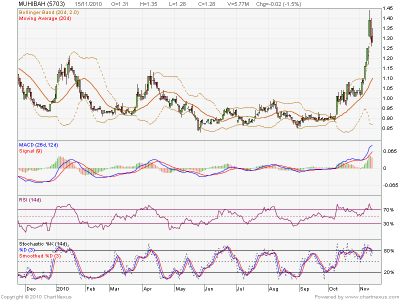In Kuala Lumpur, land prices have appreciated even more sharply and the recent sale of a piece of land for over RM7,000 per sq ft has raised alarm among some consumer groups and industry players.
They worry that the high price transacted for the land will be used as the bargaining power for other land owners to push their land prices upwards in the surrounding areas.
This will inevitably be an unhealthy prelude to an overheating in the property market as land is the basic commodity in a property development process. When the price paid for a piece of land escalates way beyond the market norm or the last transacted price, it has actually moved ahead of market fundamentals.
The question is who then will have to bear the high cost at the end of the day. Certainly it will not be the developers as they will factor into their total project costing and recoup the cost by pricing the property they build higher.
And if the property is not for sale but for leasing, the rental rates can also be expected to be higher. Although property buyers are not directly or immediately affected by the high land cost, they will also have to share part of the burden when the prices of goods and services are fixed higher (as the business operators who rent the space will factor the high rent into their pricing.)
The Government’s plan to redevelop the 160ha Sungei Besi airport and the 1,320ha Rubber Research Institute land in Sungei Buloh should help to ease the land-scarcity problem.
The initiative should be accorded a top priority and, if possible, a dedicated agency is set up to oversee the whole planning and development process for these large parcels of land, taking into account the real needs of the people.
This will ensure better integration of public transport services and other infrastructure, housing and other commercial property needs that are more long-term and sustainable.
Given the huge need for more affordable housing in the Klang Valley, especially homes priced between RM200,000 and RM350,000, this will be the golden opportunity to plan for such housing projects. Hopefully at least 30% of the land for housing development will be allocated to affordable housing for all eligible Malaysians.
It is indisputable that real estate is an important economic sector, accounting for 50% of the country’s wealth. But the cap on the sector’s growth could be the relatively lower earning and purchasing power of Malaysians compared with those in other high income countries. For the industry to leapfrog to another level of growth, the people’s purchasing power has to grow faster or at least in tandem with the rising property prices as we will need investors who can afford to pay for the high-end properties that are to be built.
The Government’s iniatitives to turn Malaysia into a high income economy will create the platform for the people to earn higher per capital income to support their higher purchasing power.
Expanding the pool of buyers who have the means to absorb the high-end property that are being churned out by developers now will hopefully create a more sustainable property market – one where demand matches supply.
THE STAR




































